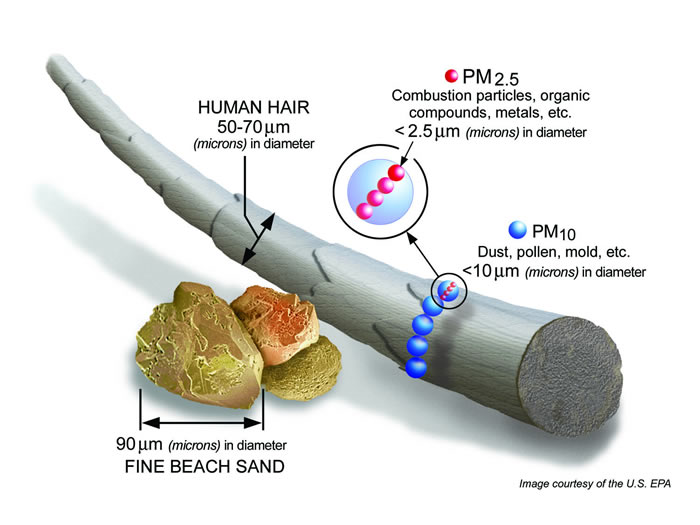US Environmental Protection Agency (EPA) definition for Particulate Matter
Particle pollution (also called particulate matter or PM) is the term for a mixture of solid particles and liquid droplets found in the air. Some particles, such as dust, dirt, soot, or smoke, are large or dark enough to be seen with the naked eye, others are so small they can only be detected using an electron microscope and you will not be aware that you are breathing it in.
These particles come in many sizes and shapes and can be made up of hundreds of different chemicals. Some particles, known as primary particles are emitted directly from a source, such as construction sites.

The fine particulate matter emitted in diesel engine exhaust is classed as being carcinogenic to humans and in 2004 the World Health Organisation (WHO) advised that there is no evidence of a safe level of PM exposure or a threshold below which no adverse health effects could occur.